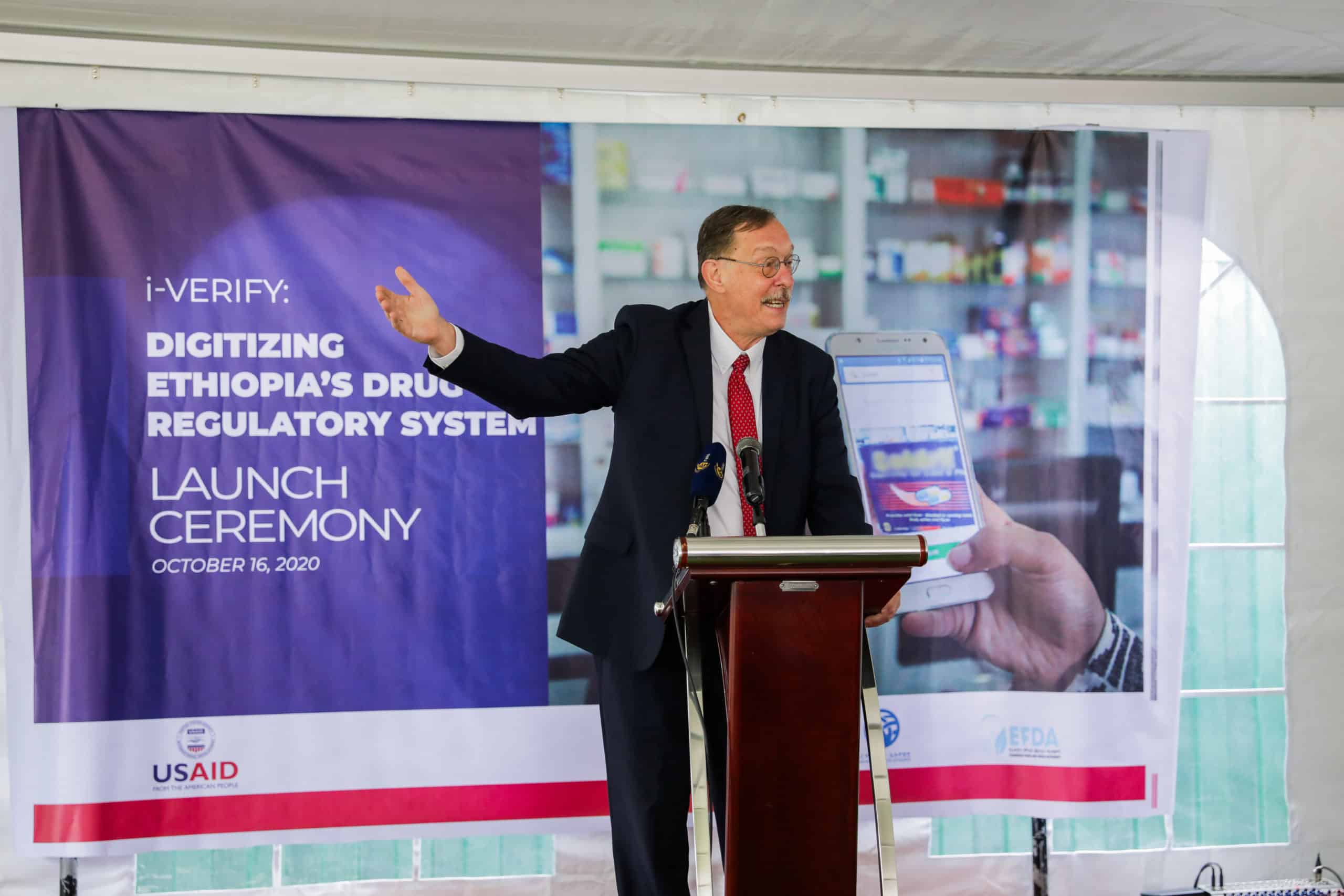Combating Counterfeit Products by Digitizing the National Drug Regulatory System: The Case of i-Verify
October 25th, 2020 | viewpoint
The USAID-funded Ethiopia Digital Health Activity supports national health information system (HIS) needs in a holistic manner, including co-creating nationally-owned solutions to digitize and integrate HIS at all levels of the health sector. Drawing on a pool of trainers, networking experts, and field-level implementation support teams, the project supports software design, development, deployment, operations, maintenance, improvement, and scale-up efforts across all priority subsystems. DHA has facilitated significant improvements in the country’s Electronic Community Health Information Systems (eCHIS), District Health Information Software 2 (DHIS2), Electronic Medical Record (EMR) and Human Resource Information Systems (HRIS), Health Commodity Supply Chain Management System, and the Electronic Regulatory Information Systems (eRIS).
The presence and use of substandard and falsified medical products in Ethiopia threaten to undermine progress toward the goals of the National Health Sector Transformation Plan and, more broadly, the country’s commitment to meet the Sustainable Development Goals. Counterfeit products, which may be of poor quality, unsafe, or ineffective, endanger the health and well-being of the community.
Recently, track-and-trace technologies have emerged that help manufacturers, regulators (e.g., the Ethiopian Food and Drug Administration), health workers, and patients to combat counterfeiters. The technologies rely on harmonized, standardized coding and identification systems and tools to authenticate medical products.
DHA has supported the development of a mobile application called i-Verify, which was launched in October 2020. I-Verify is used to monitor the movement of health commodities and products through the health import process and supply chain, from manufacturing to the point of issue. The app can be used by anyone at any point in the supply chain to verify the authenticity of a product. Users can trace a product to where it was produced to determine whether it has been altered, how, where, and by whom. I-Verify can also be used to track products as they begin to move through the supply chain to ensure that they arrive in the hands of the intended client.
The Ministry of Health (MOH) is making deliberate investments in the development and implementation of digital health tools like i-Verify because they provide critical support for health system strengthening. The State Minister of Health, Saharela Abdullahi, said during the i-Verify Launch Ceremony, “This digital tool that we are launching today [i-Verify] has a paramount importance in our efforts toward developing harmonized traceability systems in order to build trust, improve patient safety, and supply chain efficiency.”

Using i-Verify, Ethiopians can detect the authenticity of the medical products they use. In the words of Jim Dobson, USAID’s Deputy Mission Director: “I want to affirm that these efforts are just the start of our support in the fight against counterfeit drugs here in Ethiopia. We will continue to work closely with the Government of Ethiopia to roll out the application as well as further develop the tool until we have a full track and trace system in the country.”
We strive to build lasting relationships to produce better health outcomes for all.